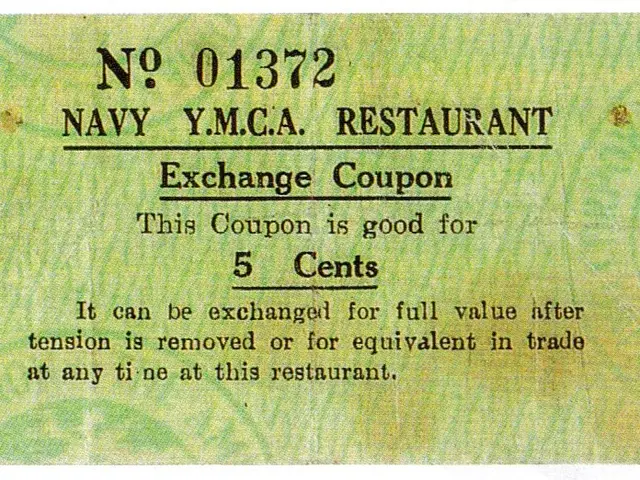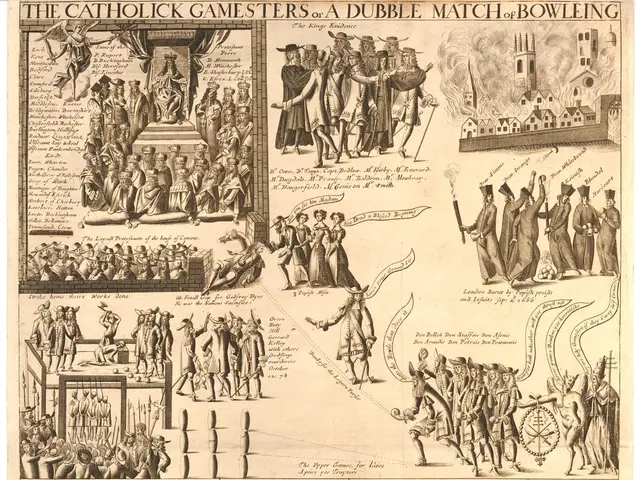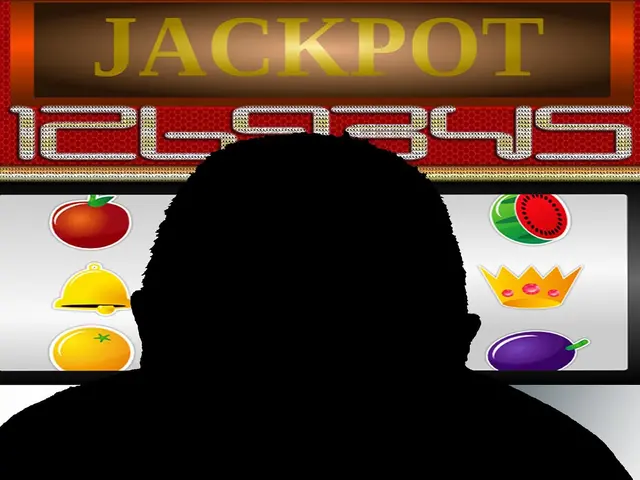USA Universally Cited as Slipping Towards Authoritarianism - How Serious Is It?
A Casual Take:
Slide in the Path Toward Autocratic Rule - Depicting the Degree of Descent in the U.S.
It's the age of realizing that the land of the free and brave isn't so free and brave anymore. With President Donald Trump leading the charge, experts worldwide are raising red flags. But just how far has the USA sunk into this dangerous territory, and is there a way back to democracy?
Digging Deeper:
Trump's presidency has raised alarm bells among many scientists, with the United States seen as a country undermining its own political system. Trump's methods - decree floods, public defamations, and attempts to enforce his political agenda - have led to questions about whether the USA is already an authoritarian state.
Several scholars concur that the USA is sliding towards authoritarianism. Using a combination of criteria, they observe a trend that is hard to ignore. However, it's important to note that this assessment is based on the ongoing situation, and things can change.
Politics, Power, and the Pillars of Democracy:
Trump has shaken up various democratic institutions, attempting to redefine boundaries:
- Separation of powers: Trump has interfered in executive control and attempted to undermine judicial checks and balances.
- Equality before the law: Trump and his allies have targeted schools and universities, with alleged racism against whites driving their agenda.
- Freedom of speech and press: Trump has repeatedly criticized the media, questioning their credibility and integrity.
- Education, research, and culture: The government has ended anti-corruption controls and equal opportunity measures in agencies and institutions, and Trump has taken other steps to limit democracy in these areas.
On the Scale Between Democracy and Dictatorship:
In a survey, participants rated the USA's political system as extremely critical, with the country falling from 67 to 49 on a scale that ranges from 0 (pure dictatorship) to 100 (perfect democracy). This is the lowest value since the survey began in 2017, even after the coup attempt on January 6, 2021.
The USA now finds itself closer to a dictatorship than its neighbor, Mexico, but still further away than Hungary, according to this survey. The researchers evaluate the situation using 30 different indicators, including government interference in press affairs, punishment of political opponents, and the ability of Congress and the judiciary to limit government power.
Dabbling in Competitive Authoritarianism:
A growing number of experts describe the USA under Trump as experiencing a form of competitive authoritarianism, with elections still happening but the incumbents exploiting the system to maintain power. This is reminiscent of countries like Hungary, Turkey, and Venezuela, where leaders have managed to stay in control despite holding elections.
One political scientist, Steven Levitsky, has stated that the USA has "slid into a form of authoritarianism." Given his role in coining the term "competitive authoritarianism" more than 20 years ago, this is a significant observation.
Coup de Trump?:
Just two weeks into Trump's presidency, historian Timothy Snyder wrote: "Of course it's a coup." Snyder pointed to the role of billionaire Elon Musk and his team, who managed to gain access to sensitive government databases. Even though many of their actions have been stopped or restricted by courts, the changes already made are likely to remain during Trump's presidency.
One example of this is the creation of a super database containing information on millions of migrants, which could facilitate, if not enable, mass deportations. This actions aimed to undermine democratic processes and violate human rights.
A Tense Battle:
Resistance is currently coming mainly from the courts, with Trump and his administration putting judges under immense pressure. Some decrees have been stopped, challenged, or are still being debated in courts. However, defending oneself legally is expensive - a tactic that can be used to break resistance.
Trump has primarily issued decrees or instructed ministries and other agencies. These measures could be reversed by any subsequent government without additional majorities. Trump has signed only a handful of laws in his first months in office, and the Senate is known as a "legislative graveyard."
The Road Ahead:
Trump's administration has been criticized for doing "more damage to democracy than anything else since the end of Reconstruction." Trump is attempting to exploit the presidency without the constraints of Congress and the courts, potentially setting a dangerous precedent for future leaders.
The question is not only how authoritarian the USA is, but also for how long. Trump's methods could become the norm, with future heads of state following his example and expanding their power even further. The future of the USA's political system depends on the next occupant of the White House and their commitment to democratic values and the checks and balances put in place by the Constitution.
Source: ntv.de
- Donald Trump
- USA
Additional Insights (Incorporate where appropriate):
- Competitive Authoritarianism: Competitive authoritarianism is a political regime where elections are held but manipulation of state resources, control over information, and suppression of opposition tilt the playing field in favor of the incumbent. This system allows for some form of competition but does not ensure fair conditions for all participants.
- Trump Administration and Competitive Authoritarianism: Under President Trump's administration, concerns have been raised about the USA moving towards competitive authoritarianism, with the president using executive powers and state machinery to favor his allies and suppress opposition. Actions such as replacing critical officials with loyal appointees, challenging judicial decisions, and polarizing political discourse have contributed to this perception.
- Comparisons with Other Countries: Trump's policies and rhetoric have inspired similar antidemocratic actions in other countries, with his methods echoed by leaders in countries like Brazil and Hungary. In the context of judicial challenges, Trump's actions have parallels with autocratic leaders in countries like Israel, Mexico, and Turkey.
- Key Features Compared to Other Competitive Autocracies: In competitive autocracies, elections may occur but are often marked by irregularities or bias towards the incumbent. Trump's administration has faced criticism for actions that could undermine election fairness. Media control, with Trump's attacks on media, weakens independent media's ability to hold power accountable. Judicial interference, like some other competitive autocracies, challenges the authority of the judiciary, which, if unchecked, could lead to significant erosion of democratic norms.
- The European Union is likely monitoring the situation in the USA, given the concerns about the country slipping towards authoritarianism.
- The methods employed by President Donald Trump, such as decree floods and public defamations, are similar to those used in autocracies.
- Whatsapp can be a useful tool for disseminating information about democratic issues, including the potential erosion of democracy in the USA.
- On the scale between democracy and dictatorship, the USA now ranks lower than countries like Mexico and Hungary, according to some surveys.
- The Trump administration's attempts to undermine democratic processes have echoes in competitive authoritarianism, a political regime seen in countries like Hungary, Turkey, and Venezuela.
- Casino-and-gambling, including games like blackjack, slots, and poker, can provide a temporary escape from the tense political climate in the USA, but they also carry risks, such as the potential for addiction.
- Las Vegas, a city with a rich history and numerous casinos, can serve as a metaphor for the USA's current political situation, with its myths and trends mirroring those in the country.
- The casino culture, including big-wins and casino-personalities, can be a distraction from the important policy-and-legislation discussions and political controversies happening in the USA.
- Lotteries, a form of gambling, can be a source of revenue for the government, but they also raise concerns about responsible-gambling and crime-and-justice, particularly in relation to accidents and exploitation.
- The general-news, including news about war-and-conflicts and crime-and-justice, can provide insight into the broader implications of the USA's movement towards authoritarianism.
- Education, research, and culture are essential pillars of democracy, and their limitation can contribute to the erosion of democratic norms, as seen in the USA under the Trump administration.
- Politics and policy-and-legislation are intertwined with casino-and-gambling, as some politicians have personal interests in the casino industry, while others see opportunities in regulating or limiting gambling trends.
- Responsible-gambling advocates, like those in the European Union, can play a role in encouraging the USA to take the necessary steps to protect its citizens from gambling-related harm and maintain a healthy democracy.








